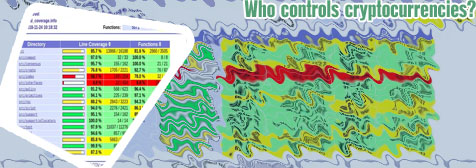
- Wink crypto price
- Btc broker
- All crypto coins
- Cryptocom taxes
- Btc news today
- When does crypto market open
- How to buy crypto on binance
- Why can't i buy tron on cryptocom
- Dogecoin news
- How to stake cro on cryptocom
- How much to buy dogecoin
- Bonfire crypto price
- Cryptos
- Btc value usd
- Ethereum crypto
- Cryptocom coins available
- How to withdraw money from cryptocom
- Cryptocurrency categories
- How to get bitcoin for free
- Dogecoin price usd
- Ethusd price
- How to transfer money from cryptocom to bank account
- What happened to btc
- Bitcoin cryptocurrency
- Crypto com referral
- Best crypto to buy
- Btc mining
- Dogecoin 20 where to buy
- Crypto com limit order
- Bitcoin apps
- Etc crypto
- Cryptocurrency exchanges
- Apps cryptocurrency
- Where to buy new crypto coins
- Buy revain crypto
- Multichain ethereum binance smart chain avalanche
- Usd to eth
- Pulse x crypto price
- Is cryptocom safe
- How much is bitcoin today
- Where to buy shiba inu crypto
- How to cash out on crypto com
- How does btc mining work
- Gas fees eth
- Top dogecoin wallets
- Price of a litecoin
- Cryptocurrency bitcoin price
- Launches crypto world check section blog
- Where to buy neo crypto
- Cryptocom authenticator app
- Binance dogecoin usd
- Buy baby dogecoin
- Create cryptocurrency
- Crypto com paypal
- 1 btc in usd
- Buy btc with credit card
- Why buy bitcoin
- How to buy crypto
- Usd to btc
- Синоним
- How many btc are there
- What is mining bitcoin
- Crypto
- How to add bank account to cryptocom
- Theta price crypto



Bitcoin formula
In the world of cryptocurrency, one burning question that often arises is: "Who manages bitcoin?" This question can be a complex one to answer, as the decentralized nature of bitcoin means that there is no central authority overseeing its operations. To shed some light on this topic, here are 4 articles that delve into the various aspects of bitcoin management and governance.
The Role of Miners in Managing Bitcoin Transactions

Bitcoin miners play a crucial role in managing transactions on the blockchain network. These miners are responsible for verifying transactions, adding them to the public ledger, and securing the network through the process of mining. Mining involves solving complex mathematical puzzles using powerful computers, in order to validate transactions and create new blocks on the blockchain.
Here are some key points to understand the role of miners in the Bitcoin network:
-
Transaction Verification: Miners verify the validity of transactions by ensuring that the sender has sufficient funds and that the transaction has not been double-spent.
-
Block Creation: Once a group of transactions, known as a block, is verified, miners compete to add it to the blockchain by solving a cryptographic puzzle. The first miner to solve the puzzle gets to add the block and is rewarded with newly minted bitcoins.
-
Network Security: The process of mining also serves to secure the network against attacks and fraud. Miners work to maintain the integrity of the blockchain by continuously validating transactions and adding new blocks.
-
Incentives: Miners are incentivized to participate in the network through block rewards and transaction fees. This system of rewards helps to ensure the continued operation and security of the Bitcoin network.
-
Decentralization: The distributed nature of mining helps to keep
Understanding the Role of Nodes in the Bitcoin Network
In the Bitcoin network, nodes play a crucial role in maintaining the decentralized nature of the system. Nodes are essentially computers that are connected to the Bitcoin network and are responsible for validating transactions, relaying information, and enforcing the rules of the network. Without nodes, the Bitcoin network would not be able to function effectively.
One of the key functions of nodes is to validate transactions. When a transaction is initiated on the Bitcoin network, it is broadcast to all nodes for verification. Nodes then independently verify the transaction by checking the sender's balance, ensuring that the transaction is valid, and confirming that the sender has the necessary funds. Once a transaction is verified by a node, it is added to a block and then added to the blockchain, which is a public ledger of all Bitcoin transactions.
Nodes also play a role in relaying information throughout the network. When a node receives a new transaction or block, it propagates that information to other nodes in the network. This helps to ensure that all nodes have the most up-to-date information about the state of the network.
Overall, nodes are essential for maintaining the integrity and security of the Bitcoin network. By participating as a node, individuals can help to support the network and contribute to the overall health of the Bitcoin ecosystem.
Exploring the Role of Developers in Bitcoin Protocol Upgrades
none
The Impact of Exchanges on Bitcoin Price Management
none
